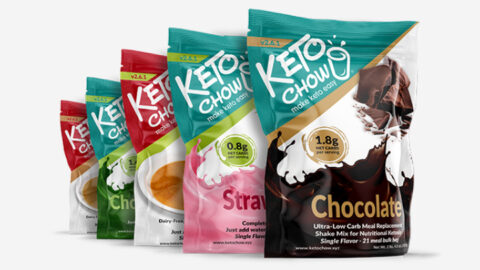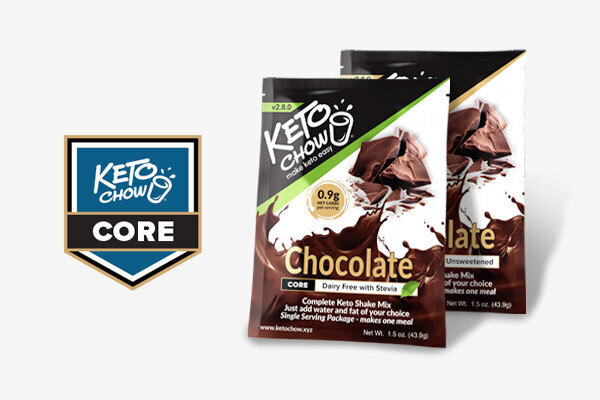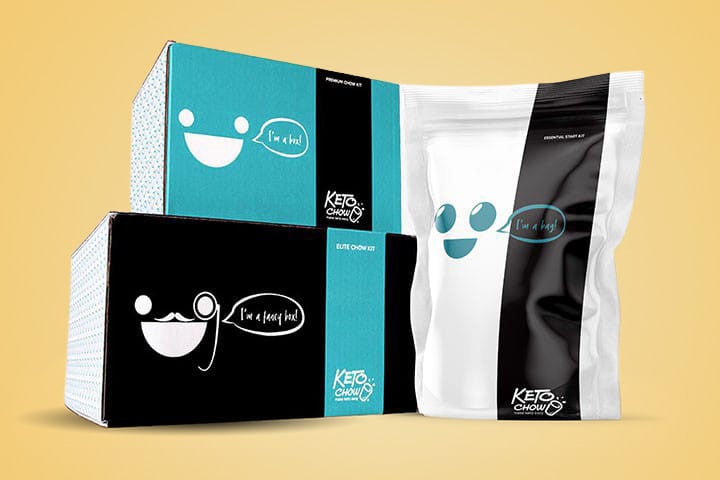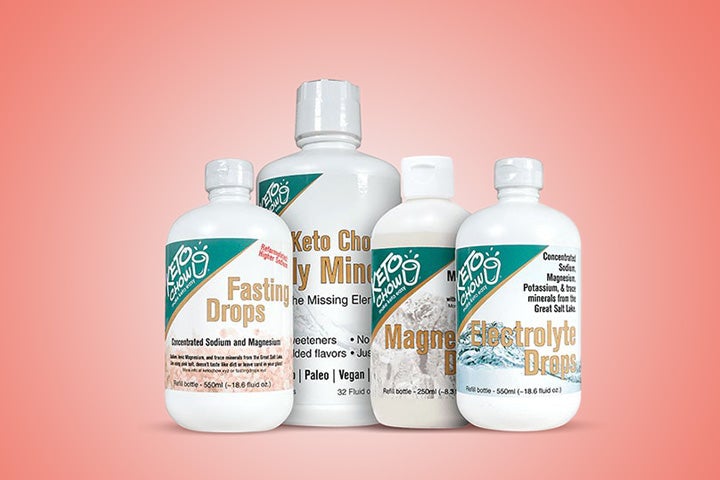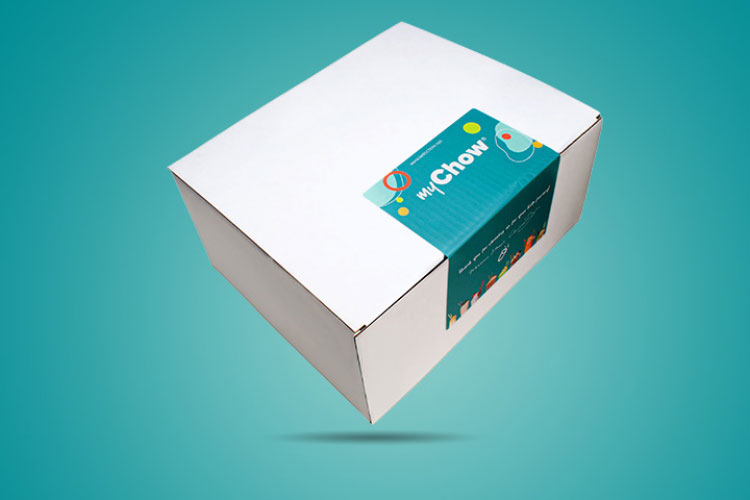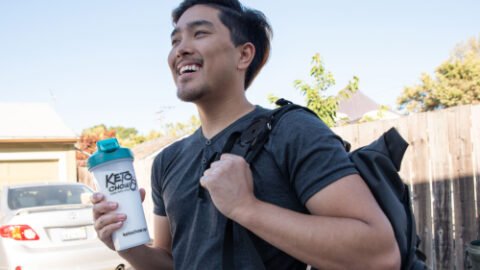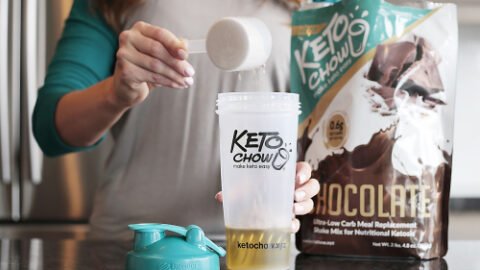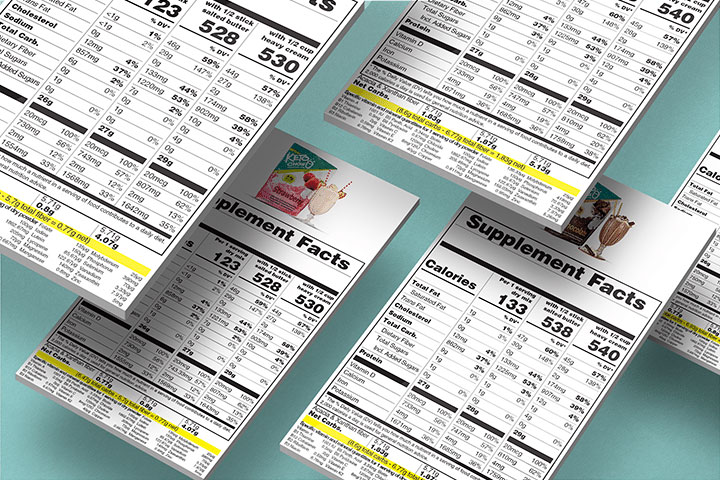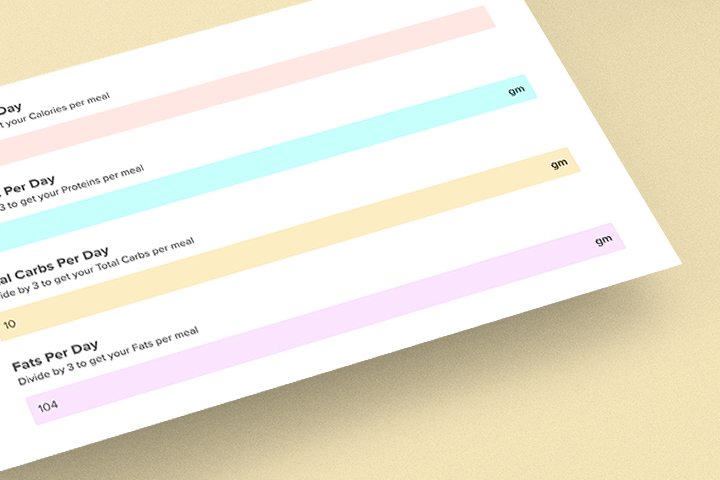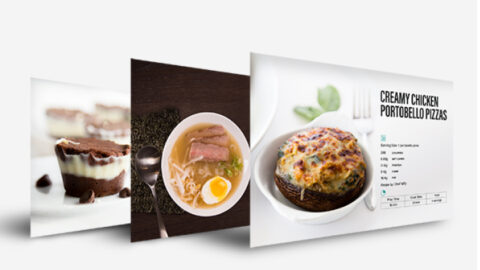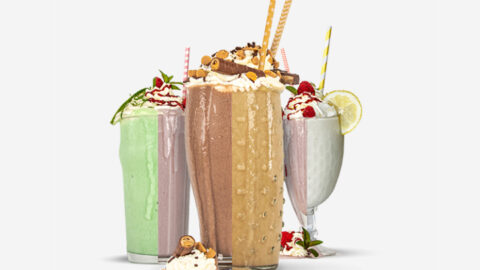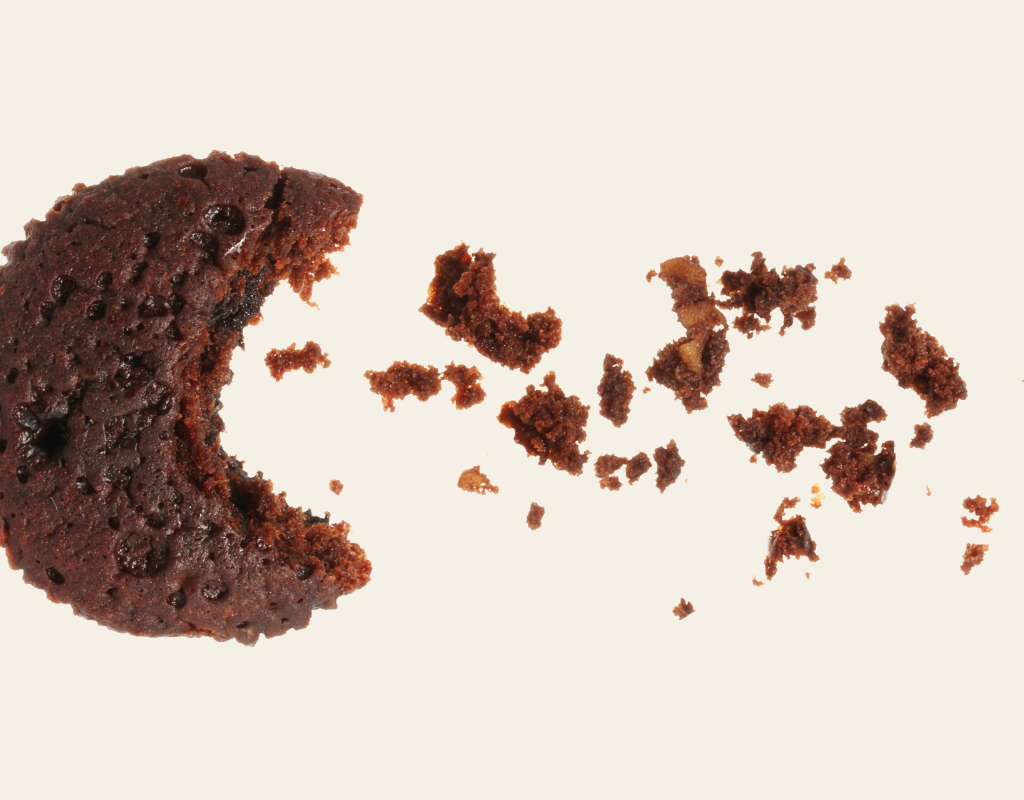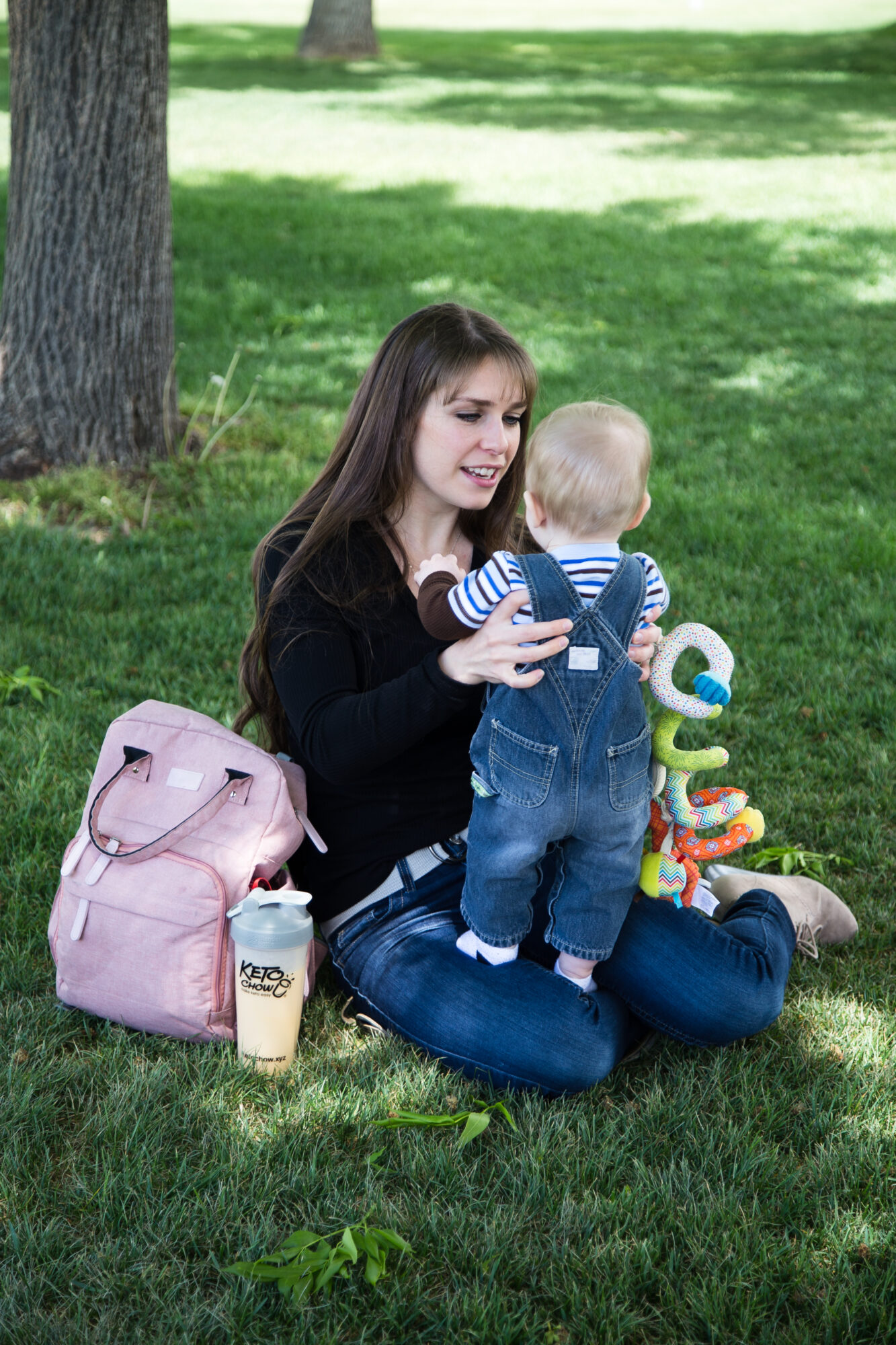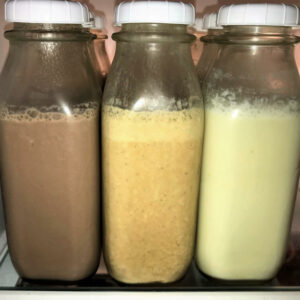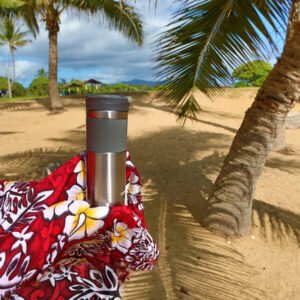Have you ever felt hangry? You know, a combination of hungry and angry? You become intensely irritable and feel a sudden, urgent need to eat immediately. You might even be tempted to gnaw your own arm off if you don’t get food, STAT.
It’s easy to joke about this – because we’ve all been there! – but it can indicate low blood sugar (hypoglycemia)…which is no laughing matter. Let’s talk more about it.
What is Hypoglycemia?

The meaning of hypoglycemia is built directly into the word: hypo (low), and glycemia (sugar in the blood). So, hypoglycemia just means low blood sugar. However, this is a relative term, because the word is typically used to refer to symptomatic hypoglycemia – a state in which your mood, cognitive function, and other factors are affected. It is not defined by any particular level of blood glucose.
When hypoglycemia comes up in the keto world, we are most commonly referring to reactive hypoglycemia, so named because it is your body’s reaction to food that was eaten a short time earlier.
What Causes Reactive Hypoglycemia?
If hypoglycemia is low blood sugar, then what causes the blood sugar to get too low? For most people, it’s consuming high-carb foods or beverages. In people with reactive hypoglycemia, high-carb foods cause a large and rapid rise in blood sugar, which prompts a large and rapid rise in insulin.
The insulin does such a good – and quick – job of lowering the blood sugar that it lowers it a little too much or too quickly, which results in the signs and symptoms detailed below.
Signs and symptoms of hypoglycemia

The classic signs and symptoms of hypoglycemia are diverse and go far beyond just feeling hangry. They include:
- Feeling shaky or anxious
- Irritability or impatience
- Feeling dizzy or lightheaded
- Hunger
- Nausea
- Pale skin (pallor)
- Confusion, difficulty concentrating
- Headaches
- Sweating or feeling clammy
- Feeling weak or sleepy
When hypoglycemia is severe, signs and symptoms may include:
- Blurred or double vision
- Slurred speech
- Clumsiness or difficulty with coordination
- Being disoriented
- Seizures
- Loss of consciousness
Can You Have Hypoglycemia at a Normal Blood Sugar Level?

Yes! Well, more precisely, you can feel the signs and symptoms of hypoglycemia even if your blood sugar isn’t all that low. For some people, hypoglycemic symptoms don’t result solely from the blood sugar being overtly low, but rather, from the rate of the drop from the level it was at previously.
For example, if you feel hypoglycemic symptoms when your blood sugar is in the 80s mg/dL (4.4 – 5.0 mmol/L), your blood sugar is perfectly normal but it may have plummeted by a large amount in a short time from where it was before. So, it’s possible to feel hypoglycemic even if your blood sugar isn’t actually low.
On the flipside, it’s possible to feel perfectly well and have no signs or symptoms of hypoglycemia even when your blood sugar is well below 70 mg/dL (3.9 mmol/L). Hypoglycemic symptoms result mainly from the brain and central nervous system detecting that there isn’t enough glucose available to fuel them. The brain is an extremely energy-hungry organ.
A disruption in its fuel supply could have catastrophic effects, so it makes sense that it would send up big alarm signals if it thinks fuel is scarce.
So how can you feel completely normal when your blood sugar might be considered “low”? Simple: ketones are a great fuel for the brain. So even when blood sugar is on the low side, if you’re generating ketones, those ketones can step in and give the brain some energy.
How Do You Treat and Prevent Hypoglycemia?
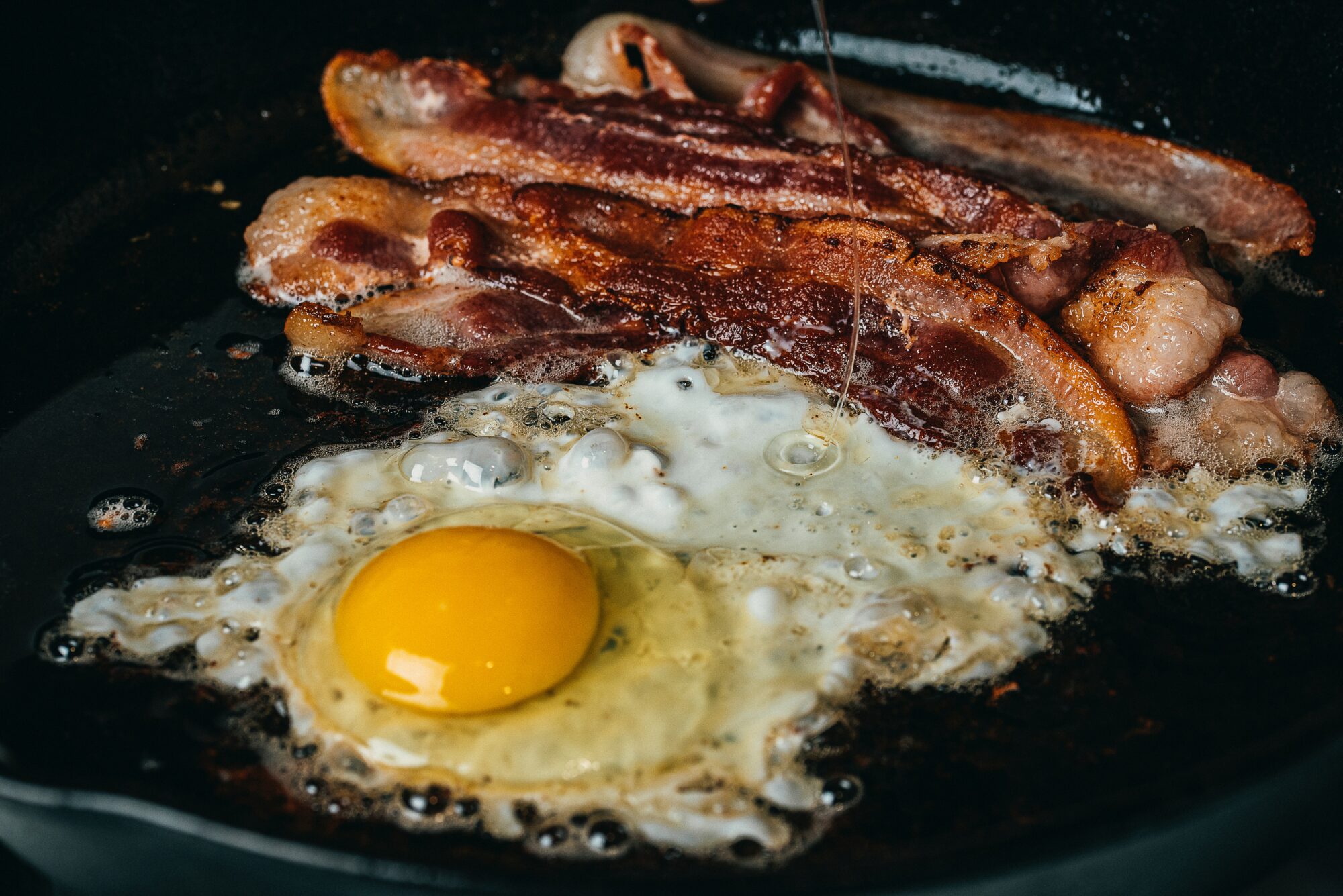
In the acute situation – when you’re experiencing some of the issues above – taking a small amount of rapidly absorbable sugar or glucose will restore your blood sugar to a comfortable level and help you feel better. (A small amount of juice, candy, or glucose tablets, for example.)
If you’re on a low-carb or keto diet, eating anything can typically provide relief. A bit of protein and fat often takes the edge off. You don’t need to reach for sugar.
But ideally, you prevent hypoglycemia from happening in the first place, and that means avoiding the foods that cause it to occur. With this in mind, a keto diet is a good way to go because things that cause large fluctuations in blood sugar are off the menu altogether.
Most people who go on a keto diet report that within just a few days, their hunger is less intense and they no longer need to snack between meals. They can go several hours comfortably without eating – and without wanting to tear someone’s head off.
But not everyone needs keto to prevent hypoglycemia. Some people can include things like potatoes, beans, fruit, and other whole food carbs without a problem but they need to steer clear of refined carbs and especially liquid sugar, like fruit juice, smoothies, and sugar-sweetened soft drinks.
Other Causes of Hypoglycemia
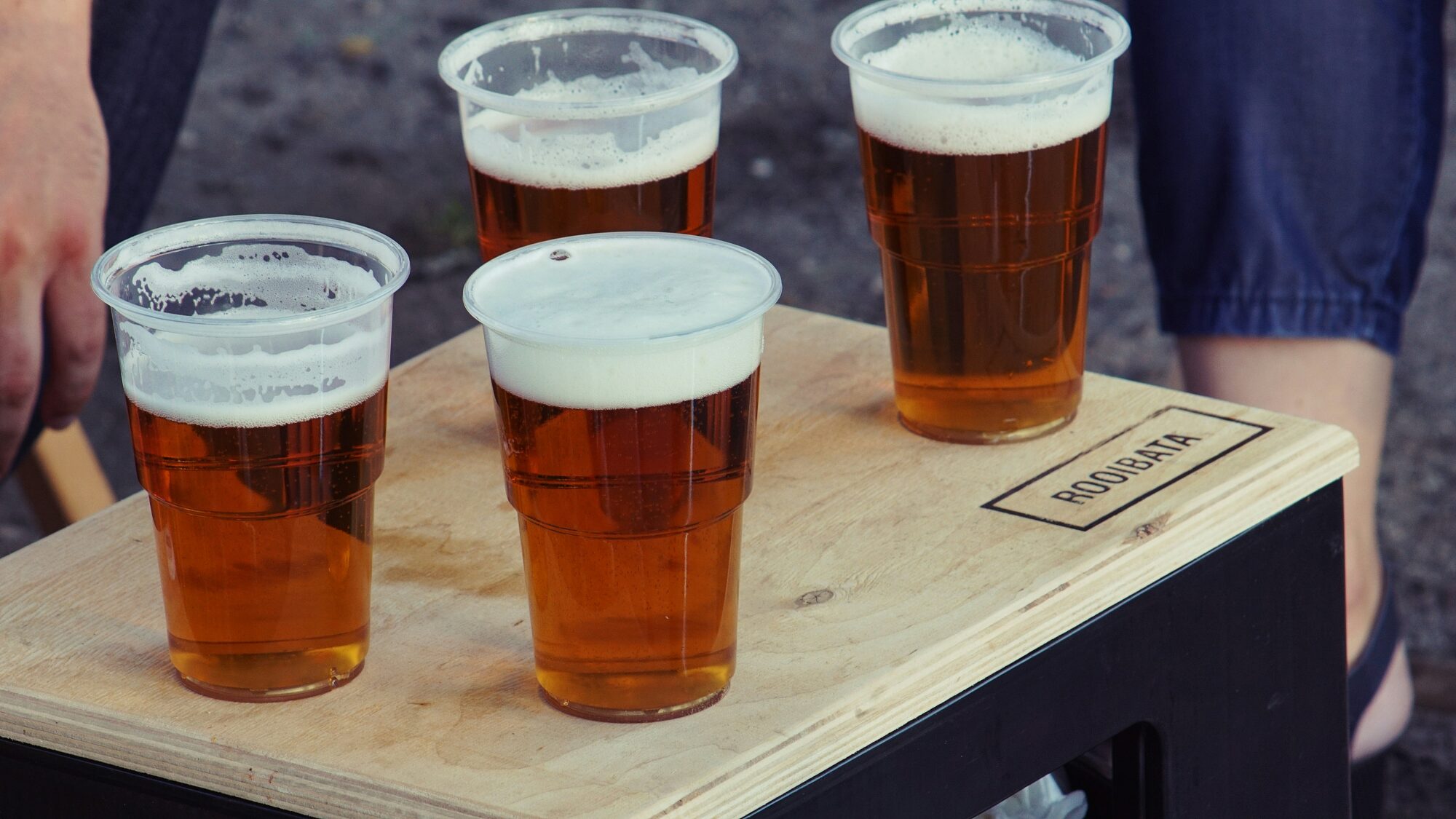
There are other kinds of hypoglycemia besides reactive hypoglycemia. Critical illness may cause hypoglycemia, as can rare hormonal problems. Excessive alcohol consumption – especially on an empty stomach – can cause hypoglycemia because alcohol inhibits gluconeogenesis. (Alcohol reduces your liver’s ability to secrete glucose from stored glycogen.)
So, if you’re on a keto diet, don’t drink without having some food.
Be Careful With Meds on Keto
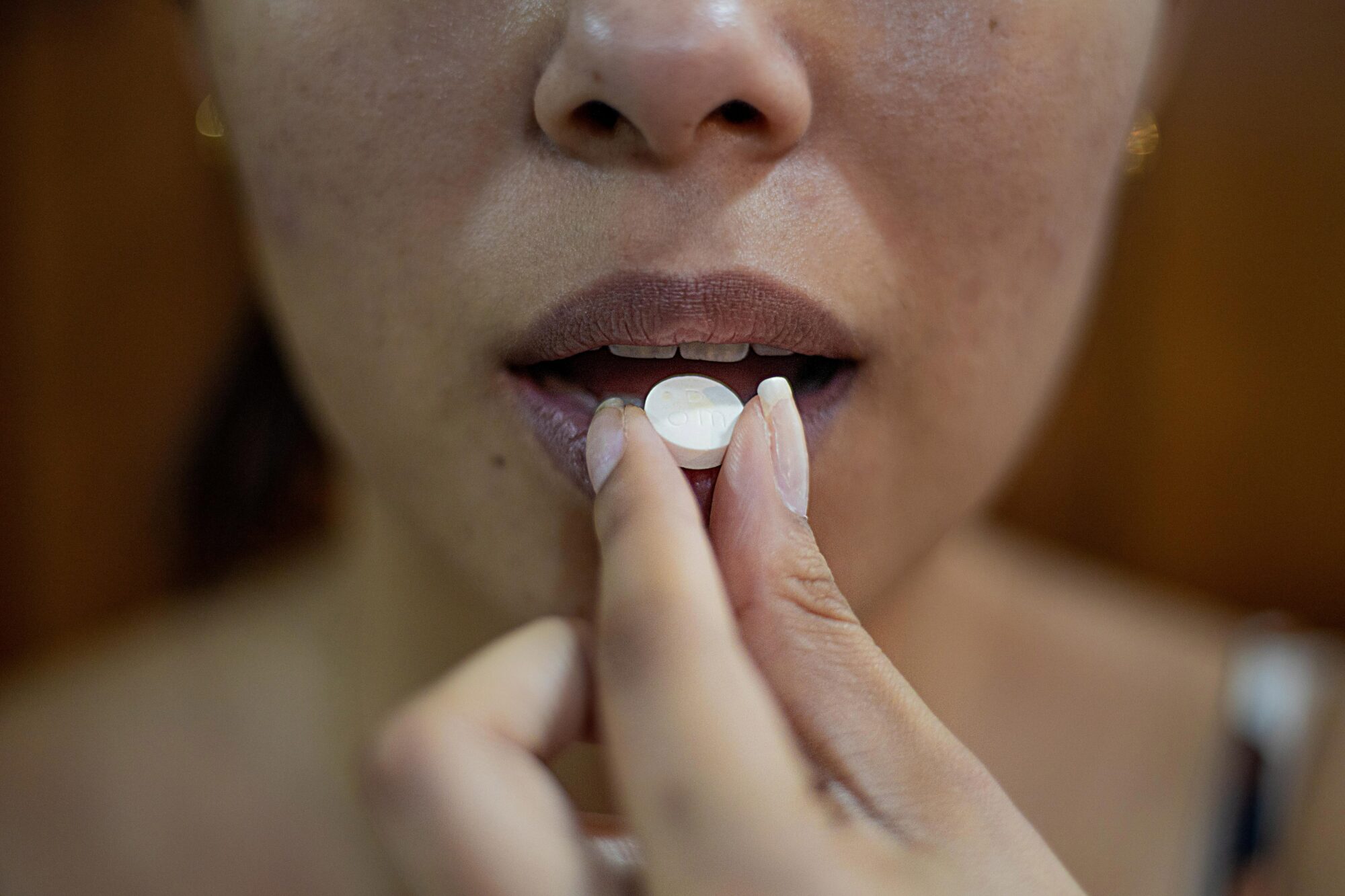
Keto diets are so effective for keeping blood sugar within a healthy range that medication for diabetes might need to be adjusted within just a few days of cutting carbs. Insulin sometimes needs to be stopped on the very first day someone adopts a keto diet, so be sure that you understand how to adjust your insulin use safely based on your blood sugar.
(If your blood sugar is already at a normal level and you inject insulin, you risk having a dangerous hypoglycemic reaction. If severe, this can even be life-threatening, so it’s essential that you understand how to adjust things appropriately. In fact, this is probably the most common reason for hypoglycemia in people with diabetes – a mismatch between the dose or timing of insulin in relation to food consumed or the baseline blood sugar level.)
Most other diabetes drugs don’t present as big a risk for hypoglycemia, so they don’t need to be adjusted right away. An exception is sulfonylurea drugs (most common names are glipizide, glimepiride, and glyburide).
If you need help adjusting your medication, work with a keto-savvy medical professional who can guide you for your safety. You can search for one through the Society of Metabolic Health Practitioners.
Hypoglycemia unawareness
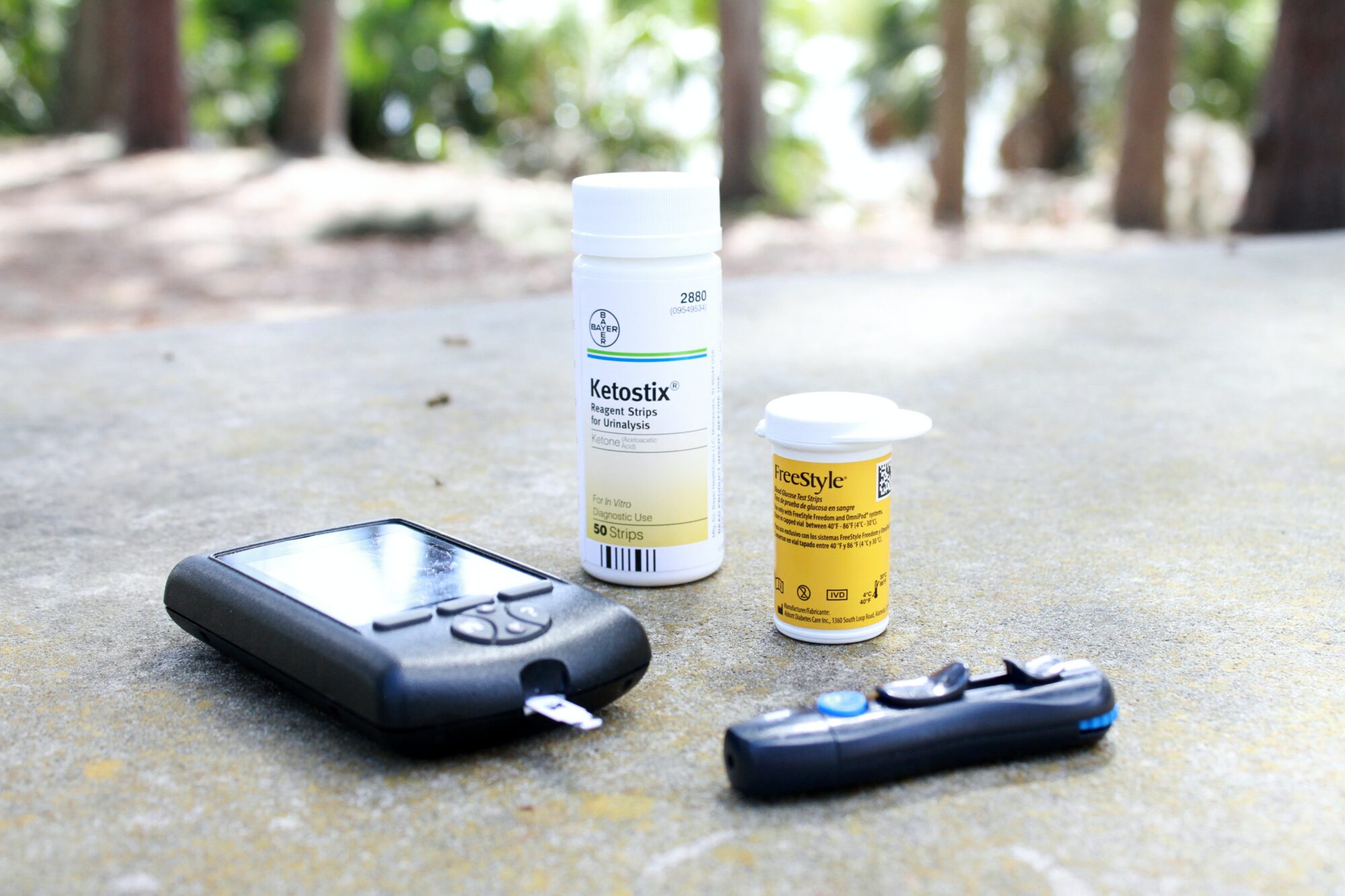
Before we sum up, just a quick note about something that’s especially important for people with diabetes. It’s possible to have low blood sugar and not even know it. This is called hypoglycemia unawareness and it may result from repeated episodes of hypoglycemia where your brain no longer sounds the alarm with signs and symptoms.
The risk here is that the blood sugar could drop to a dangerous level before the person realizes and takes corrective action. This could cause passing out or another serious issue. If you have diabetes and you’ve had repeated bouts of hypoglycemia with or without you being aware of them, consider using a CGM (continuous glucose monitor) to start recognizing the patterns that are causing those episodes so you can avoid the triggering foods or behaviors.
(And remember, keto diets are excellent for reversing type 2 diabetes and helping you have normal, stable blood sugar, so if you’re not already eating this way, consider giving it a try!)
Summing Up

Low-carb and keto diets are great for preventing hypoglycemia by preventing the main cause: a rapid rise in insulin followed by a rapid drop in blood sugar.
If you experience problems with hypoglycemia on keto, make sure that you are adjusting diabetes medications as needed and consider eliminating “keto” substitutes for high-carb foods. They might be causing more of an impact on your blood sugar and insulin than you realize.
Looking for a low-carb meal?
Then check out Keto Chow! Keto Chow is a keto-friendly meal shake with 1/3 of your daily recommended nutrients. Make Keto Chow in seconds, and choose from over 25 delicious flavors.
